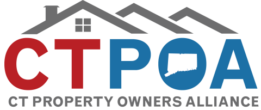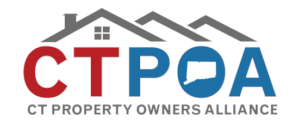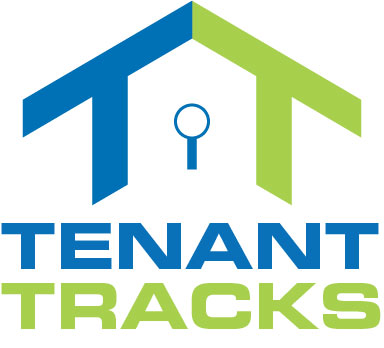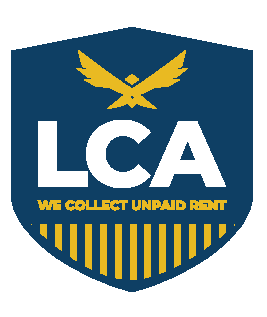As a landlord in Connecticut, your rental properties represent significant investments. Maximizing the income generated from these properties is crucial for achieving financial goals, covering operating expenses, and ensuring long-term profitability. While rent collection is the most obvious source of income, there are numerous strategic approaches you can implement to enhance your revenue streams within the Connecticut market. This guide explores smart tips for Connecticut landlords looking to optimize their rental income.
- Strategic Rent Setting: Finding the Sweet Spot
Setting the right rental price is paramount. Charging too much can lead to prolonged vacancies, while underpricing leaves money on the table. To determine the optimal rent in Connecticut:
- Conduct Thorough Market Research: Analyze comparable rental properties in your specific location. Consider factors like size, amenities, condition, and neighborhood desirability. Online rental platforms, local real estate listings, and even driving around to observe similar properties can provide valuable data. Pay attention to how long comparable units stay on the market and their listed rental rates.
- Consider Seasonal Demand: In Connecticut, rental demand can fluctuate seasonally, particularly around academic calendars and summer moving trends. You might be able to command slightly higher rents during peak seasons.
- Factor in Property Features and Amenities: Highlight unique selling points such as updated appliances, hardwood floors, in-unit laundry, parking, outdoor space, or proximity to public transportation, schools, and amenities. These can justify a higher rental rate.
- Regularly Review and Adjust: The rental market is dynamic. Annually (or even semi-annually), reassess your rental rates based on market changes, property improvements, and tenant turnover. Small, incremental increases for renewing tenants can contribute to overall income growth. Be mindful of Connecticut laws regarding rent increases and ensure proper notice is given.
- Minimizing Vacancy Periods: The Income Killer
Vacancies directly erode your rental income. Implementing strategies to minimize the time a unit sits empty is crucial:
- Proactive Lease Renewals: Initiate lease renewal conversations with tenants well in advance of their lease expiration. Offer incentives for renewing, such as minor upgrades or a small rent increase rather than a full market reset.
- Efficient Tenant Screening: As discussed previously, thorough tenant screening (potentially using services like TenantTracks) helps secure reliable tenants who are more likely to fulfill their lease terms, reducing unexpected vacancies.
- Strategic Marketing: When a vacancy is anticipated, start marketing the property early and effectively. Utilize online rental platforms, local classifieds, and even “coming soon” signage. High-quality photos and detailed descriptions are essential to attract prospective tenants.
- Streamlined Showing Process: Make it easy for potential tenants to view the property. Offer flexible showing times and be responsive to inquiries.
- Competitive Move-In Incentives (Strategically Used): In a competitive market, consider offering a small move-in incentive, such as a reduced security deposit (while still complying with Connecticut limits) or a partial month’s free rent. Weigh the cost of the incentive against the potential lost income from a prolonged vacancy.
- Optimizing Lease Terms and Fees (Legally Compliant)
Carefully structuring your lease agreements and implementing permissible fees can contribute to your bottom line:
- Late Fees: Connecticut law allows for reasonable late fees when rent is not paid on time. Clearly outline your late fee policy in the lease agreement, ensuring it complies with state regulations. Consistent enforcement is key.
- Security Deposits: Collect security deposits in accordance with Connecticut law (typically no more than two months’ rent, or one month for tenants over 62). Proper handling and accounting of these funds, as well as lawful deductions for damages beyond normal wear and tear, can protect you from financial losses at the end of a tenancy.
- Pet Fees (if applicable): If you allow pets, consider charging a reasonable, non-refundable pet fee or a monthly pet rent to account for potential additional wear and tear. Ensure your pet policy complies with fair housing laws regarding service and emotional support animals.
- Short-Term Lease Premiums: If you offer short-term lease options (e.g., month-to-month after the initial term), you can typically charge a premium due to the increased turnover risk and administrative burden.
- Adding Value and Amenities (Carefully Considered)
Investing in certain property upgrades or amenities can justify higher rental rates and attract higher-quality tenants:
- Essential Upgrades: Focus on upgrades that tenants value, such as updated kitchens and bathrooms, energy-efficient appliances, and improved flooring.
- In-Unit Amenities: Consider adding in-unit laundry, dishwashers, or smart home features, which are often highly desirable.
- Community Amenities: If you manage multi-unit properties, consider adding or improving shared amenities like fitness centers, common areas, outdoor spaces, or secure parking.
- Internet and Cable Options: Explore offering bundled internet and cable packages, potentially at a discounted rate, which can be attractive to tenants and add a small premium to the rent.
- Efficient Property Management: Reducing Costs and Headaches
While not directly increasing income, efficient property management can significantly impact your profitability by reducing expenses and minimizing income disruptions:
- Proactive Maintenance: Regular maintenance and timely repairs prevent minor issues from escalating into costly problems, protecting your property value and tenant satisfaction.
- Energy Efficiency: Implement energy-efficient upgrades (e.g., LED lighting, efficient windows, insulation) to reduce utility costs, which can be passed on to tenants or make your property more attractive.
- Technology Adoption: Utilize property management software to streamline rent collection, track expenses, manage maintenance requests, and improve communication with tenants.
- Insurance Review: Regularly review your landlord insurance policies to ensure you have adequate coverage at competitive rates.
- Professional Property Management (Consideration): If you manage multiple properties or find the demands overwhelming, consider hiring a professional property management company. While there is a cost involved, they can often improve efficiency, reduce vacancies, and handle tenant issues effectively, potentially leading to higher overall profitability.
- Cultivating Positive Tenant Relationships: Reducing Turnover Costs
Retaining good tenants is often more cost-effective than constantly finding new ones. Building positive relationships can lead to longer tenancies and reduced turnover expenses:
- Prompt and Professional Communication: Be responsive to tenant inquiries and maintenance requests.
- Fair and Consistent Enforcement of Lease Terms: Ensure all tenants are held to the same standards.
- Respect Tenant Privacy: Adhere to Connecticut laws regarding entry and provide proper notice.
- Consider Tenant Feedback: Be open to reasonable suggestions and address legitimate concerns.
- Exploring Additional Income Streams (Carefully and Legally)
Depending on your property type and local regulations, you might explore additional income streams:
- Parking Fees: If parking is limited, consider charging a reasonable fee for assigned parking spaces.
- Laundry Facilities (Multi-Unit): If you provide shared laundry facilities, these can generate additional income.
- Storage Fees: If you have extra storage space, you might be able to rent it to tenants.
- Vending Machines (Larger Properties): For larger multi-unit buildings, vending machines can provide a small revenue stream.
Important Considerations for Connecticut Landlords:
- Connecticut Landlord-Tenant Laws: Always ensure all your practices comply with Connecticut General Statutes Chapter 830.
- Fair Housing Laws: Be vigilant in adhering to federal and Connecticut Fair Housing laws to avoid discrimination in any aspect of your rental business.
- Documentation: Maintain thorough records of all financial transactions, lease agreements, and communications with tenants.
By implementing these smart tips and staying informed about the specific regulations within the Connecticut market, landlords can strategically maximize their rental income, enhance the profitability of their investments, and foster positive and sustainable tenancies.








